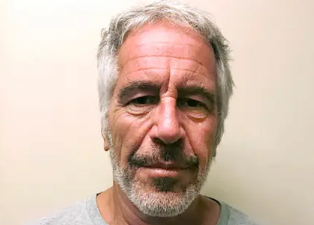ASHRAF Ali, 20 and Abdool Shazim Razack were on Tuesday sentenced to 15 years imprisonment each after pleading guilty to the lesser count of manslaughter for the June 10-14, 2014 murder of taxi driver Dhanraj Latchman during the course/furtherance of a robbery.
Defence attorney Keoma Griffith, in his plea of mitigation told the court that his client Ali is 20 years old and at the time of the offence he was just 17. He related that his client is very active in the prison’s steelpan programme and has played across the country and also utilised the other programmes offered by the prison, such as carpentry, barbering and joinery.
[ad id=”10069″]
Griffith added that his client was not alone at the time of the incident and asked for a reasonable sentence, given the fact that he is on the road to being reformed for re-integration to society. For Razack, the attorney said the young man resided at J.P Latchman Singh Housing Scheme, East Coast Demerara and was in the family’s carpentry business. Griffith added that his client was 18- years-old at the time of the incident and is active in the various programmes in prison in the trade of carpentry and joinery and was the head cook while at the Timehri Prison. Defence attorney told the court that his client is very remorseful and asked for leniency in his sentencing. Razack told the court that he is sorry for his actions and apologised to the relatives of the deceased. He also pleaded with the judge for a light sentence.
[ad id=”10069″]
In response, state prosecutor Tuanna Hardy told the court that the deceased Dhanraj Latchman was only 17 years old at the time of the incident. She stated that he grew up with both accused, who had planned to rob him of his vehicle after hiring him to take them to Parika Backdam, where they placed their hands on his neck until he passed out. The duo then dumped his body and escaped in his car. A post-mortem revealed that Dhanraj died as a result of asphyxiation due to compression of the neck.
In handing down his ruling, Justice Singh told the court that he took into consideration the killers’ expression of remorse and their attempt to become better persons in prison by engaging in the programmes offered in jail. He then sentenced both men to 15 years imprisonment and asked that the time served be deducted from the 15 years given. Justice Singh took several factors into consideration such as his early plea, his acceptance of responsibility for his actions and his direction in prison to be rehabilitated.
Ali and Razack had told the police that after they had choked the teenager until he blacked out,
one of them attempted to slit his throat with a knife after they realised that he was still breathing, but the other, a mason, decided against spilling the victim’s blood.
Instead, they cut the car’s seatbelt with the knife, and put the seatbelt around his neck. Then, using a piece of wood to turn the seatbelt, they tightened it around his neck until they had strangled him. The wood was later discovered in the car, which was found the following day.
They then drove farther down the Parika Backdam and ‘four-handed’ the lifeless body of the teen into a clump of bushes, before making their way out of the area in his vehicle.
The men had lured Latchman and his vehicle to Parika with a story that they were heading to Parika to uplift some money. But as they were exiting Good Hope village, ECD, they had encountered Latchman’s uncle, and one of them had used the jersey he was wearing to conceal his face when they exited the car, instructing Latchman to pick them up at another location. They had re-boarded the vehicle, and the party proceeded to Parika.
During the journey, Latchman had received several calls from his mother and father, cautioning him to take his time on the roadway since the distance was a far one. Reportedly, during those calls, the young man had given his parents the names of the two persons he was transporting to Parika. At Parika, they had met with one Robin who has a body-work shop in the area. Robin was the person from whom they had expected to collect the money — payment for Latchman’s car, which the two showed up to sell Robin.
While the suspects were in negotiation with Robin in his yard, Latchman was seated in his vehicle. They subsequently joined him, sitting on the car’s bonnet drinking a few beers and apparently quietly considering how they would get rid of the unsuspecting teen. Reportedly, when Robin enquired about the driver of the car, since it was the first time he was seeing him, the cousins told him that the driver of the car was in fact the owner of the car. The man then immediately declined to purchase the car, since he was not sure how the vehicle could be sold with its owner being present. He was not then aware that the cousins had already worked that out.
The cousins then left with Latchman, and murdered him by strangulation before returning to Robin, who then reportedly questioned them about Latchman’s whereabouts. “We finish he off,” they reportedly told Robin. For clarification, Robin reportedly asked the men what they meant, and they informed him that they had killed the teenager and taken the car. Robin then again told them that he was no longer interested in purchasing the car, and that they should leave.
The two then returned to the Parika Backdam with the car, which they parked and immediately began searching for another market for the vehicle. They used their victim’s cellphone to hold a 45-minute conversation with someone on the Corentyne coast concerning purchase of the car, before returning to the East Coast Demerara via public transportation and going to a Third Street, Lusignan residence, where one of the men lived with his parents.
When Latchman’s relatives could no longer contact him, they decided to visit the home of the teen last seen in the car with him, along with the other suspect. They also took police to the home. However, when the men were questioned they gave conflicting statements, which caused the police to keep them in custody. One of their statements was that they had travelled back to the East Coast with Latchman, but on the way he had picked up two other persons, who had requested to be taken to Enmore.
They told investigators that they disembarked at the Lusignan main road and Latchman had proceeded with the other two men to Enmore.
While family members were a bit apprehensive, they became even more convinced that the two had something to do with the teen’s disappearance when his car was discovered at Parika Backdam.




